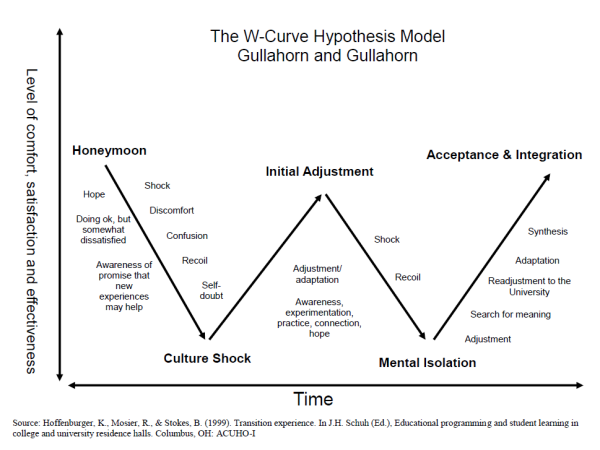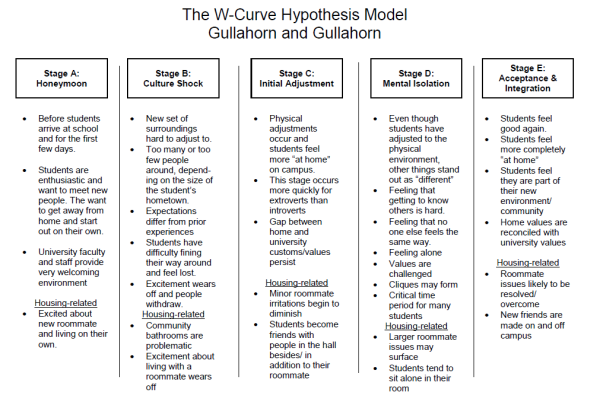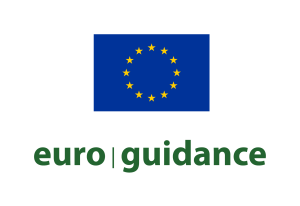Module 3: Role of guidance in mobility
EXPECTED LEARNING OUTCOME: You will know how to support clients before, during and after a learning mobility period and develop your own personal toolbox
1. Guidance practitioners' roles in mobility
1.1. Before mobility

Proactive or reactive counsellors
Often the guidance work prior to a stay abroad is mostly reactive; the guidance counsellor answers questions regarding options and opportunities from the applicants who made contact on their own initiative or from applicants who participate in a project. This approach may lead to studying abroad becoming an activity only for resourceful people who already have taken the initiative or have the perspective and the courage to take the step.
Studies show that also less resourceful people can benefit from a stay abroad, if it is well organised and well implemented and fits into the applicants’ profiles. It is generally a challenge for guidance practitioners to work more proactively with stays abroad; encouraging and motivating people to include a period abroad in the framework of their education, even if they may not have initially considered the idea or do not feel comfortable with such a choice.
- Motivate. Other people's stories can often be the first spark for interest of a stay abroad. It does not necessarily have to be the well-formulated and successful storytellers; it is more important that the listener is able to identify with the teller and get a feeling of "I could do that too". If it is not possible to invite people to talk about their experiences from studies a or training abroad or the students can listen to recorded stories or read an interview. Showing a video is also a good way to inspire or start a conversation. Here are a few examples:
- Hilda from Sweden studied in Ireland. Now she works in the municipality with climate related tasks:
- Sofia from Sweden went on an exchange to South Africa and is now working as a nurse:
- Clarify. The individual's own attitude to the stay abroad is crucial for a good experience. Here, the mobility guidance work can focus on determining the individual’s readiness to face the world. Will this student be able to handle this type of international exchange? The mobility guidance work can also contribute to a clear picture of how the stay abroad fits into the individual's future plans, so that the exchange does not become an isolated phenomenon, without connection to planned studies or work.
- Prepare.
- Linguistic preparation. Language skills increase security and facilitate a deeper understanding. Language is also a key to becoming part of a social context. But there is no general advice for linguistic preparation as these depend on the individual's prior knowledge. The Council of Europe (COE) has developed a model for describing skills in foreign languages. That model (see below) can be used for a self-assessment that can form the basis for an educational plan for language learning before and during a stay abroad. → Overview of the different levels in the Council of Europe's reference framework for languages, from A1 to C2 (link opens website in new tab) https://sv.wikipedia.org/wiki/Gemensam_europeisk_referensram_f%C3%B6r_spr%C3%A5. Linguistic preparation can be about practicing a language you already know by reading, watching movies, etc. It can also be a good idea to produce or hand out glossaries or wordlists that the participant can learn before the stay and use in everyday life. In addition, language preparation can be about doing language tests to show eligibility for various educations
- Educational preparation. From a learning point of view, one can see several possible goals with a stay abroad. It may, for example, be about developing international competences (knowledge of foreign languages and intercultural qualifications). The focus can also be subject-specific, study-related or professionally oriented knowledge. Personal development might also be a goal, gaining the ability to handle differences and an ability to change.
- Individual curriculum. An exchange or a volunteer experience can include guided learning reflection, but most often it is up to the person traveling to try to gather his or her thoughts i.e., "learning by doing". Increased personal responsibility for one's own learning characterises most stays abroad. Regardless of what stay abroad entails, an individual curriculum facilitates both follow-up and reflection afterwards. Here learning objectives for personal development can be included.
- Mental and cultural preparation. Those who are mentally prepared for the fact that staying in another country can include unexpected situations and attitudes, have greater opportunities to meet various challenges. Some of them are general to everyone who travels and it can be good to point out that e.g. homesickness and doubts disturb most people at times.
- Do cultural research. Cultural preparation can make the difference between a successful stay and a period of difficulties and disappointment. Therefore, encourage the participants to learn as much as possible about the culture that awaits them. Films, music and local fiction can be very useful. It also helps to imagine what it would mean to live in a different culture and under different living conditions. How to greet someone? Is it okay to talk about politics? What to do with the toilet paper? The more the participant knows before departure, the easier it will be. Important information and personal reflections are most easily obtained via the internet and social media.
- Our perspective is not the only one. No matter how much you read about the country in advance, it is difficult to comprehend everything new, the fine print, what is usually called culture. What do people really mean when they say something? What lies between the lines? The participants see and understand the new country from their own cultural pre-understanding, in the same way as the people in the host country walk around with their cultural perspective.
W-curve
The W-curve is a model describing emotional and cognitive reactions to intercultural experience. At first, everything is exciting and one is boosted with positive energy. Then, the person might start to experience difficult emotions like discomfort and confusion. At this stage, depending on the age, homesickness, and thoughts about returning home are prevalent. Then, if the student prevails, a new sense of adaptation and hope occurs. Again, after a while, the student may experience another mental stress situation (mental isolation). Deep learning and intercultural awareness are the next steps where the student re-examines and readjust to the new context.
As a counsellor, you can talk about the W-curve and the possible stages that the person is likely to encounter. Looking at the W-curve once again when the student returns and discussing the experiences, may also deepen the learning process.


The W graphs
Guidance counsellors should also prepare the pupil or the student going abroad with the “re-entry worm”. This is a reversed W-curve; however, it has another shape. Again, the joy of seeing friends and family again (“the honeymoon phase”) overshadows some difficulties. Then, something might feel different, and the student may presume a critical stand against what was formerly taken for granted. And especially the friends’ loose interest in the stories from the stay abroad. At this stage, the “re-entry worm” may need some assistance to overcome the negative spiral and help the student reflect on the meaning of difference and feelings from the reversed culture-shock into balanced re-adaptation.
**
Watch a Danish video about challenges of mobility stays:
**
